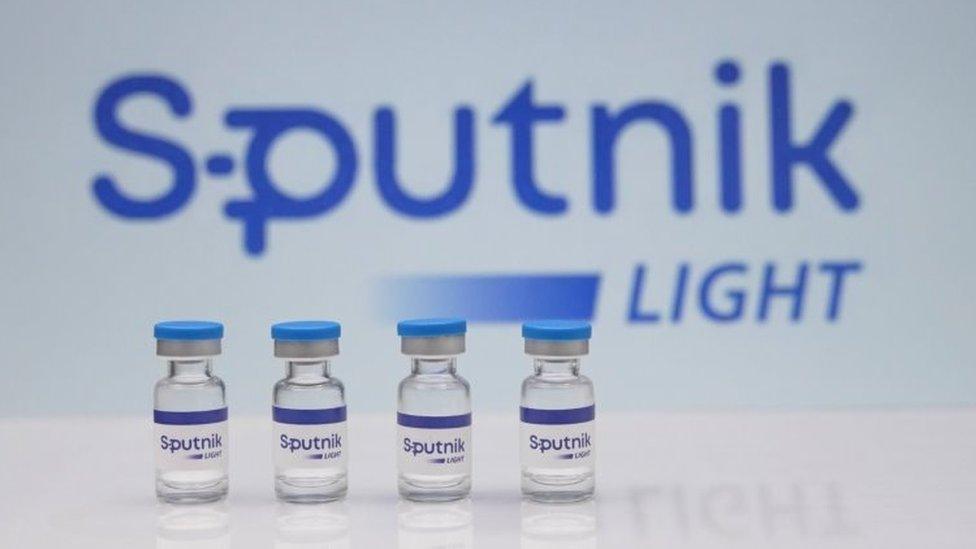Covid: Putin says Sputnik vaccines 'reliable as Kalashnikovs'
- Published

Russia authorised the single-dose version of Sputnik jab on Thursday
President Vladimir Putin has heralded Russia's vaccine offering as "reliable as a Kalashnikov assault rifle".
The comment was made during a video conference on Thursday with Deputy Prime Minister Tatyana Golikova.
It came as the country's health officials registered a single-dose version of the Sputnik V vaccine on Thursday, dubbed Sputnik Light.
Mr Putin's comparison referenced the Soviet Union-era weapon that remains popular and widely used still today.
He was quoting a comment originally made by an Austrian doctor earlier this year about the jab's efficacy.
The Sputnik V vaccine works in a similar way to others developed by Oxford/AstraZeneca and Janssen/Johnson & Johnson. It uses a cold-type virus, engineered to be harmless, as a carrier to deliver a small fragment of the coronavirus to the body.
Critics of the Putin administration were sceptical when the vaccine was given speedy regulatory approval in Moscow last year, but late-stage trials have found it offers high levels of protection against Covid-19.
The two-dose version of the jab has now been authorised in dozens of other countries around the world.
Mr Putin said Russia's vaccines were among the most reliable and safe
Sputnik Light, a single-use version where recipients only get the first jab, was officially authorised in Russia on Thursday.
In a press release, its makers said a single dose had demonstrated 79.4% efficacy during the country's vaccine roll-out.
"The single-dose regiment allows for immunisation of a larger number of people in a shorter time frame, furthering the fight against the pandemic during the acute phase," the statement said, external.
The authorisation comes amid an ongoing international row over whether patents should be waived on vaccine technology to boost production.
Related topics
- Published2 February 2021
- Published29 December 2020
- Published11 August 2020
- Published23 March 2021
- Published5 December 2020
- Published11 December 2020